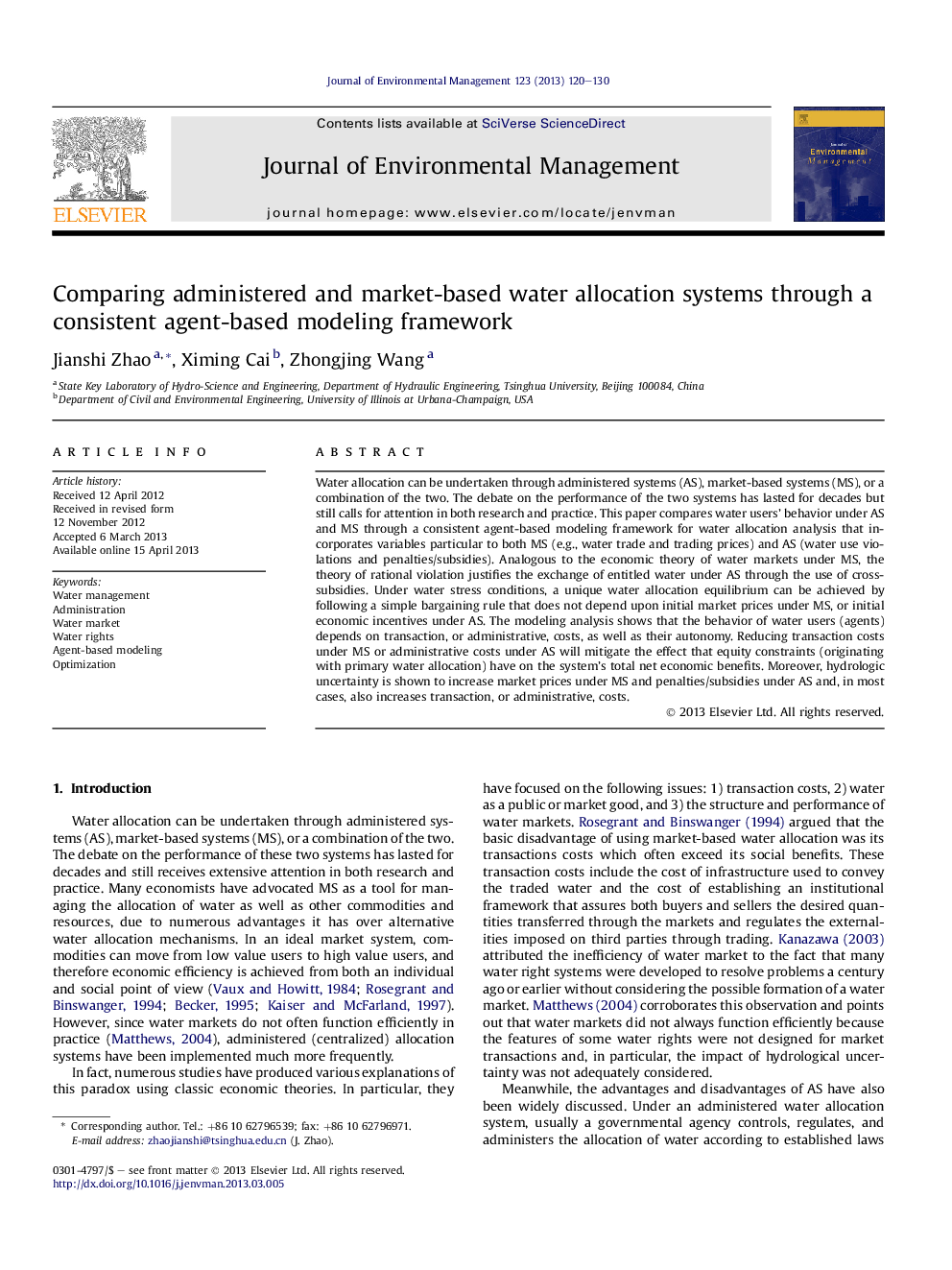| کد مقاله | کد نشریه | سال انتشار | مقاله انگلیسی | نسخه تمام متن |
|---|---|---|---|---|
| 1056292 | 1485289 | 2013 | 11 صفحه PDF | دانلود رایگان |

Water allocation can be undertaken through administered systems (AS), market-based systems (MS), or a combination of the two. The debate on the performance of the two systems has lasted for decades but still calls for attention in both research and practice. This paper compares water users' behavior under AS and MS through a consistent agent-based modeling framework for water allocation analysis that incorporates variables particular to both MS (e.g., water trade and trading prices) and AS (water use violations and penalties/subsidies). Analogous to the economic theory of water markets under MS, the theory of rational violation justifies the exchange of entitled water under AS through the use of cross-subsidies. Under water stress conditions, a unique water allocation equilibrium can be achieved by following a simple bargaining rule that does not depend upon initial market prices under MS, or initial economic incentives under AS. The modeling analysis shows that the behavior of water users (agents) depends on transaction, or administrative, costs, as well as their autonomy. Reducing transaction costs under MS or administrative costs under AS will mitigate the effect that equity constraints (originating with primary water allocation) have on the system's total net economic benefits. Moreover, hydrologic uncertainty is shown to increase market prices under MS and penalties/subsidies under AS and, in most cases, also increases transaction, or administrative, costs.
► A comparison between AS and MS is presented using a consistent agent-based modeling framework for water allocation.
► The theory of rational violation justifies the exchange of entitled water by cross-subsidies.
► The total benefit of the whole system is derived, which shows the three ways of improving it.
► Hydrologic uncertainty is shown to increase transaction or administrative costs.
Journal: Journal of Environmental Management - Volume 123, 15 July 2013, Pages 120–130